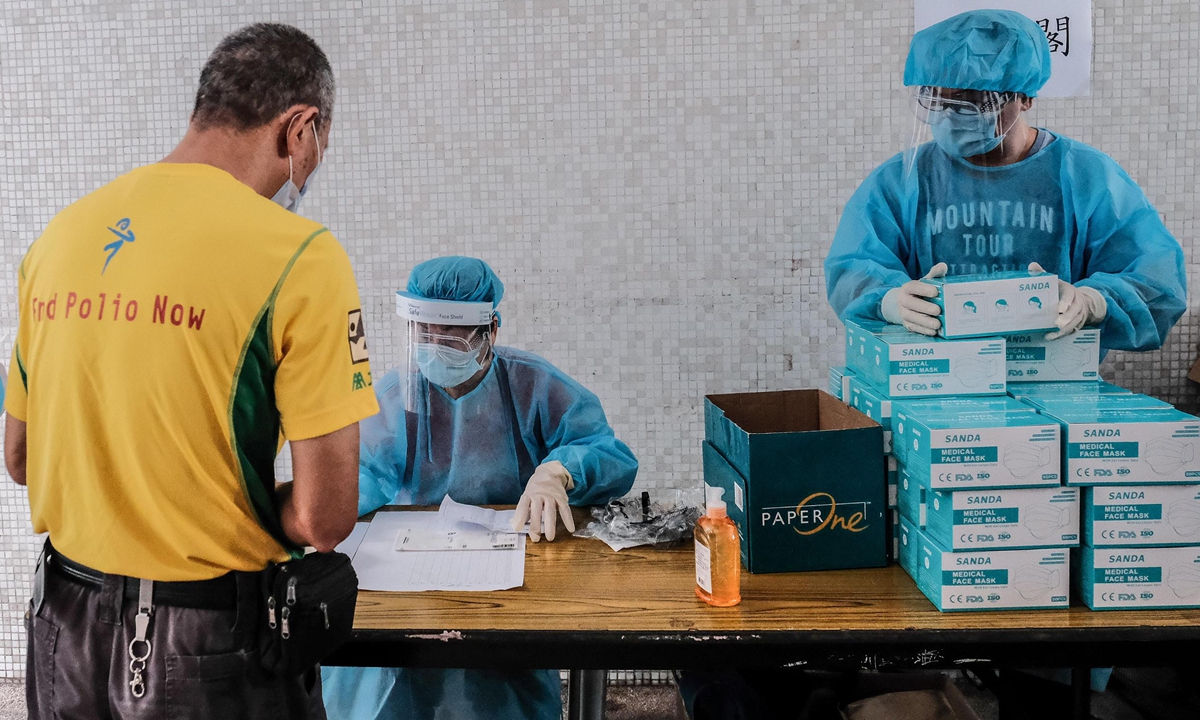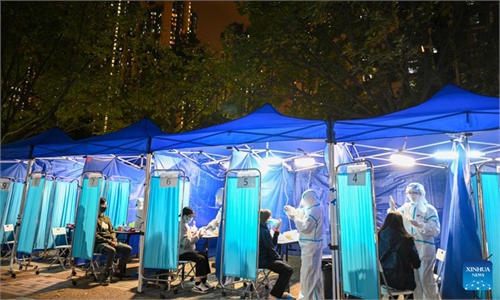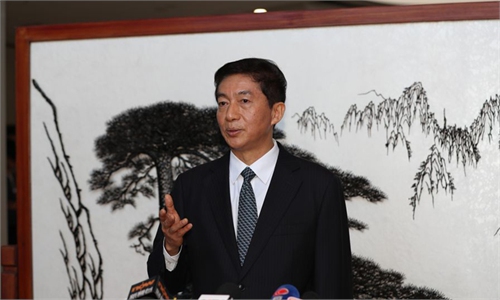
Hong Kong testing Photo:VCG
At request of the Hong Kong SAR government, the Guangdong government has deployed liaisons to learn about the city's need to improve testing and experts from the province said that they would offer help after Chief Executive Carrie Lam asked for help as the city sees record-high daily increases of coronavirus cases influenced by the Omicron variant.
Hong Kong reported 115 confirmed COVID-19 cases on Friday with five of them suspected of being the Omicron variant, according to data from the Center for Health Protection of the Department of Health in Hong Kong.
This is the second day for the city to see more than 100 daily increases of new cases. On Thursday, Hong Kong reported 164 cases. The region has so far reported more than 650 cases of the Omicron variant.
Hong Kong has witnessed record daily increases in nearly two years. Lam told media on Thursday that the government has asked assistance from Guangdong to help improve testing capability.
Lam noted that Hong Kong will adhere to the dynamic zero policy and showed its determination to cut the transmission chain to promote the border reopening between the Chinese mainland and Hong Kong.
Hong Kong-based newspaper Takungpao cited a response from the office of the Chief Executive as saying that the Hong Kong government still thinks that increasing testing capability and a focus on individual cases to cut the transmission route could help better use the resources. It has contacted contractors of nucleic acid testing and learned about their wish for assistance from the mainland.
The Guangdong provincial government has offered liaisons to contact contractors in Hong Kong to learn about their needs on personnel, materials and equipment, according to Takungpao.
An expert with the Guangdong Provincial Center for Disease Control and Prevention told the Global Times on condition of anonymity that Guangdong will offer help if Hong Kong needs it.
This round of flare-ups in Hong Kong is at the peak period without any signs of declining. There have been more than 10 chains of transmission in communities in Hong Kong with many routes of transmission still unknown, Professor David Hui Shu-cheong, Stanley Ho Professor of Respiratory Medicine and Director of Stanley Ho Centre for Emerging Infectious Diseases and also a member of the expert advisory group to provide professional advice to the Chief Executive and the HKSAR Government, was cited by rthk.hk as saying on Thursday.
The density of the population and living and working conditions in Hong Kong may facilitate the quick spread of the Omicron variant and timely nucleic acid tests in communities could help with the prevention. However, compared with the Chinese mainland, Hong Kong's testing capability still needs to be improved, Zhuang Shilihe, a Guangzhou-based immunologist, told the Global Times.
Zhuang noted that as many companies that are responsible for conducting nucleic acid tests in Hong Kong have labs in Guangdong, it would be not difficult for the province to help with the improvement in the testing capability of Hong Kong as long as there will be more coordination.
But given the current flare-ups in many cities in the Chinese mainland, including in Guangdong, and the Spring Festival travel rush, the need for nucleic acid testing is also huge in Guangdong, Zhuang said, noting that the province will still provide help to Hong Kong.


